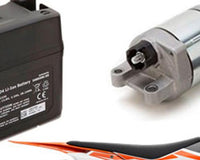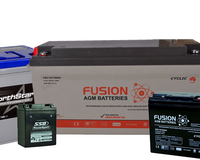Considering the pros and cons of using a rechargeable battery can be crucial if you are not careful about all sides of the puzzle you are trying to solve to meet your battery requirements. This aspect requires time, careful analysis of one’s priorities and limitations, and your budget.
In this article, I will let you see all the pros and cons of using a rechargeable battery and how these can affect your selection of the various applications you have. Let us see the brighter side of rechargeable batteries first.

The Pros of Using a Rechargeable Battery
Using rechargeable batteries can provide various benefits to consumers. These include longer service without having to buy more batteries in a shorter period, environmental-friendly as you do not have to dispose of more batteries all the time, and cost-effective for long-term use.
Longer Battery Service / Shelf Life
It is said that primary batteries have a longer shelf life than rechargeable batteries. However, if you look at a long-term perspective, rechargeable batteries have longer battery service than most disposable batteries. The key points to consider here are the rechargeable battery run time, shelf life, and cycle life.
Run time is usually undefined since it depends on the kind of application or device used. Battery chemistry is one major factor that affects the three aspects mentioned above. Rechargeable batteries are usually in such chemistries as Nickel Metal Hydride (NiMH), Lithium Rechargeable (Li-ion, or any Lithium-based rechargeable battery), Nickel Cadmium (NiCad/NiCd), and Lead Acid. The table below summarizes their shelf life and cycle life for you to compare and see which suits you best.

Battery run time pertains to the length of battery service in a single-use. Shelf life refers to how long you can store the battery and preserve its freshness on the “shelf.” Cycle life refers to the number of charges and discharges the battery takes before it can no longer be used or recharged.
Another thing to note here is the battery’s self-discharge rate. Self-discharge is highly dependent on temperature, being directly proportional. Increasing the temperature will also increase the battery’s discharge rate. Other rechargeable battery characteristics that you need to consider are energy density, recharge time, and operating temperature as shown in the table.
Environment-Friendly Batteries
Rechargeable batteries are generally environment-friendly compared to primary batteries. Aside from Nickel Cadmium (NiCad) which is now rarely used these days (except for some special application requirements), rechargeable batteries are preferred these days. These batteries are said to have 30% less impact on air pollution, 12% less impact on water pollution, 9 times less impact on air acidification, and 28% less impact on global warming. You also help to conserve natural resources.
Cost-Effective
Some people may say that buying rechargeable batteries are expensive. Sure, these may have high initial costs. However, if you look at its value for the long-term, you can surely say that these are far more cost-effective than the disposable ones. Primary batteries may not cost you much initially. Yet, these can consume greater portions of your budget if you look at them closely on periodic bases.
Convenience
Rechargeable batteries give you the convenience to just sit back and relax while you wait for your devices to be fully charged. You can even use USB rechargeable batteries anytime, anywhere for your convenience. This also keeps you from frequent visits to battery shops and changing batteries all the time.
These four things are the most important benefits of rechargeable batteries that you can never ignore. On the other hand, rechargeable ones have their limitations, too.
The Cons of Using a Rechargeable Battery
Buying rechargeable batteries also have the downside. These consequences may or may not affect you as these depend on your preferences and battery requirements. These are simplified as initial cost, charging preparations, and lack of versatility. In some cases, disposal is also an issue.
Battery Price / Initial Cost
Battery price is one of the challenging factors in choosing the right rechargeable battery for your device or applications. It greatly affects the decision of the buyer. Rechargeable batteries have higher initial costs than their primary counterparts. This is because you can use these batteries many times or years longer than the primary ones. Since these are rechargeable, you also need to purchase a specified charger which can add up to the costs.

Charging Preparations
This part is an obvious one. Since you are using a rechargeable battery, you need to wait for it to be fully charged before using it on your devices, especially when going outdoors. This could be a hassle for some consumers so they prefer using disposable batteries instead.
Lack of Versatility
Some applications requiring rechargeable batteries are not interchangeable with disposable versions. Battery chemistries are may not be interchangeable at times. Although there are replacement batteries, these batteries may not fully function than the original ones. You also need to be careful in selecting compatible battery chargers. Compatibility and versatility are not just the issues you have to face here. This also involves additional funds for finding the right charger and other related accessories.
Disposal/Recycling Concerns
Proper battery disposal and recycling concerns are not just for primary batteries. These two aspects work for any battery chemistry and type. Although it calls more of the attention of the primary battery users, disposal and recycling issues also affect the users of the secondary batteries. These eco-friendly batteries may also cause harm if not properly disposed of.
Never get rid of rechargeable batteries when the battery life is NOT fully used up as this causes more harm to the environment than disposable ones You also need to contact your area’s respective disposal and recycling departments as to how you can get rid of used batteries. You may also ask the company or battery supplier on how the disposal and recycling process of these batteries will go after these have been fully used up. This will protect you and the environment from any potential harm.

The Bottom Line
Going for rechargeable batteries or even disposable ones have their advantages and limitations. You see here that the pros outweigh the cons of using a rechargeable battery. Rechargeable batteries are highly favorable for moderate to high current draw applications. Just do your part as a responsible citizen for the proper disposal of these batteries and help in the recycling process to preserve the environment and our natural resources.









